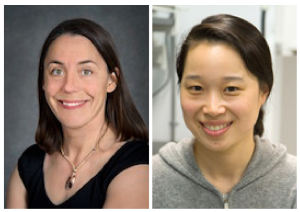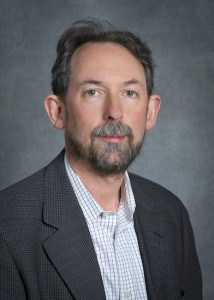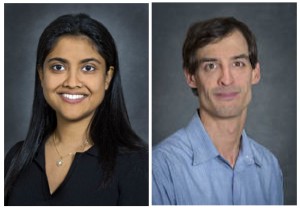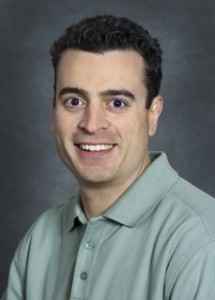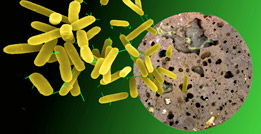 The projects of six Physical Biosciences Scientists and Engineers received funding through the FY2015 Laboratory Directed Research and Development (LDRD) program. These projects cover a broad range of topics, including energy, biomanufacturing, and technology and tool development. Together, these efforts account for nearly 15% of the $24.9 million allocated. Eighty-two proposals were selected from a field of 169. There was an equal distribution of new and continuing projects among the selected PBD proposals.
The projects of six Physical Biosciences Scientists and Engineers received funding through the FY2015 Laboratory Directed Research and Development (LDRD) program. These projects cover a broad range of topics, including energy, biomanufacturing, and technology and tool development. Together, these efforts account for nearly 15% of the $24.9 million allocated. Eighty-two proposals were selected from a field of 169. There was an equal distribution of new and continuing projects among the selected PBD proposals.
The Division’s crop of research endeavors range from studies of femtoscale phenomena to building macroscale components for manipulating microscopic processes. Anchoring the small end of this scale are two projects that focus on energy conversion on sub-molecular and molecular levels. Continuing her efforts from last year, Caroline Ajo-Franklin, Staff Scientist and member of the Molecular Foundry, will be probing dynamics of electron transfer for microbial-based energy interconversion. A newly funded proposal by Biological Faculty Engineer, Michelle Chang, involves interfacing chemical and biological catalysis for solar-to-fuel conversion.
To improve methods for studying macromolecular entities and cells, PBD Deputy Division Director for Science Paul Adams received support for the development of advanced computational tools for high-resolution cryo-electron microscopy. Determining the structures of subcellular and cellular components will help scientists answer questions in the realms of energy, environment, and health using structural information.
Two projects, led by Adam Deutschbauer and Aindrila Mukhopadhyay, operate on the microbial scale. Deutschbauer, Biologist Research Scientist and Deputy Director of Biotechnology Development for ENIGMA, will be continuing his collaborative project, Functional Genomic Encyclopedia of Bacteria and Archaea: Evidence-Based Annotation of the Microbial Tree of Life. In a new effort to tame a recalcitrant host organism for use in the lab, Mukhopadhyay, Staff Scientist and Director of Host Engineering, Fuels Synthesis Division at the Joint BioEnergy Institute (JBEI), received funding to develop a CRISPR/Cas9 knockout system for Streptomyces venezuelae.
Nathan Hillson, biochemist staff scientist and Director of Synthetic Biology Informatics, Fuels Synthesis and Technologies Divisions at JBEI, will be working to further the Division’s biomanufacturing efforts on a macroscale. His proposal, Enhancing the Design-Build-Test-Learn Cycle for Metabolic Engineering, will focus on building the infrastructure necessary to automate design, construction, and optimization of engineered systems.
One of the Biosciences Area foci for FY16 LDRDs continues to be developing scalable and flexible biomanufacturing technologies for energy and environment. Projects focusing on fundamental advances in synthetic biology that relate to energy and environment are also encouraged. Other topics of interest are research on biological responses to environmental challenges and ecosystem resilience to environmental change and methods to improve environmental quality and resource utilization.
LDRDs also provide the opportunity for researchers to work on projects related to Lab-wide initiatives. One of these, Microbes to Biomes (M2B), concentrates on the interactions of microbes with one another and their environment, uncovering those that are critical to the health and well being of their host biome, whether it is cropland, fresh water, or the human body. M2B has been launched with five FY15 LDRD-funded projects; two of these are inter-Divisional collaborations that include PBD scientists Adam Deutschbauer and Trent Northen.
Researchers in PBD are encouraged to develop M2B-related project proposals that will advance Lab strategy in the following areas: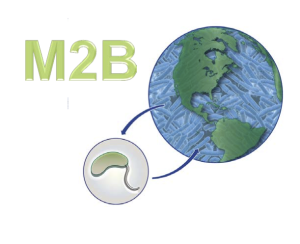
- Environmental simulation,
- In situ characterization and imaging,
- Microbiome manipulation,
- Microbe/Plant interaction, and
- Functional assessment of microbiome members.
Further discussion will be encouraged at PBD’s Open Mic Science event on Thursday, February 26, from 3-5:30 PM in the Building 66 Auditorium.
Proposals for FY16 LDRDs are due Monday, March 30, 2015. Please consider collaborating with others in one of these Lab-wide or Area-wide initiatives. If you have any questions about the LDRD process or would like help facilitating connections, please email or call Kelly Montgomery at 486-7245.

